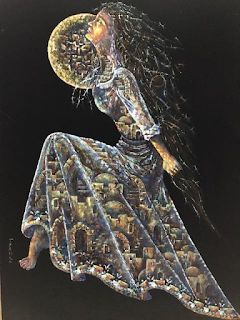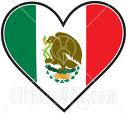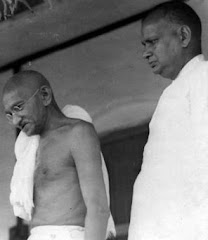Fifteen Kilometers from the Sea
Everyone in the city of Tulkarem
seems to have a sea story. Of not being able to go to the sea. Just 15
kilometers from the Mediterranean, on the border between the West Bank and
Israel, Tulkarem is as close to the sea as its residents can get. From the
outskirts of the city you can see Netanya, the Israeli seaside town which many
Palestinians remember visiting as children. But since 2002, in response to the
Second Intifada (popular uprising) access to Netanya has been denied. “I have
forgotten how to swim,” one man complained to us. Another said that now that
his wife has turned 50, she can go to Netanya without breaking Israeli law, but
even though he is 55—the legal age for men—he can’t, because of a five-year
jail sentence he served in his twenties for student activism. Israeli treatment
of Palestinians is often brutal, but sometimes it can be as elegantly cruel as
a stiletto wound; imagine having to tell your child, in the blazing heat of a
West Bank summer, that she can’t go to the sea! The people of Tulkarem who
inspired me are as elegant in their defiance of the occupation as Israel is in
its cruelty.
The first thing you notice about
Hassan (not his real name) are his movie star good looks. For those who
remember Dr. Zhivago, he evokes a
taller, leaner Omar Sharif. Then there is his stride. For an activist, it’s
decidedly non-purposeful. Lounging down the street, he has the air of someone
with all the time in the world. But Hassan is leader of the International
Solidarity Movement, the organization with the biggest, strongest, and most
vocal presence in the West Bank. He turns unruly young people who bring all
their issues with them to Palestine into effective advocates for human rights. As
founder of the Society of Social Work Committees in Tulkarem, he coordinates
efforts to help the city’s homeless and disabled. His secret? Charm, of course,
but to say that Hassan is charming is like saying that LeBron James plays
pretty good basketball. His eyes dance when he is talking with you, his voice
is soothing—I heard him scold one of his
Palestinian volunteers for not using English in a tone more appropriate, I
thought, for comforting the boy. But all this is superficial. What makes Hassan
compelling is that when you are with him you have the sense of being in the
presence of a free human being.
Like virtually all the activists we
have met in Palestine, Hassan has spent time in jail. He showed us pictures of
him and his wife at their engagement party, then mentioned that the next day he
had to go to jail for 11 months. “It was a cheap engagement!” Before meeting his wife, he had been a
political prisoner for 5 years. “For the first year it is difficult, but then
it becomes a life,” he shrugged, “there is always work to do.” I thought of
Daniel Berrigan saying to me once that inside or outside prison, it was the
ministry that was important. And then I realized the source of Hassan’s
freedom. He has let go of his private dreams and ambitions and has surrendered
himself to “the work” –ending the occupation of his beloved country. When you
do that, you live beyond fear, beyond pettiness, caught up in the power of a
love that embraces us all. As I grumble about how my hair looks in the West
Bank heat or how it’s been three days since I’ve taken a shower, thinking about
Hassan makes me gasp with admiration.
Another inspiration in Tulkarem was a
whole group of people, an artist’s collective, founded in 2003 under the
hopeful name of Dar Qandeel, or
Lighthouse. The building they rent is
from the Ottoman period, with elaborate stone work, high ceilings and a patio
in the rear with flowering trees and a chicken coop. As we headed to our
meeting on the patio, we passed paintings, sculptures, posters, and banners
(“Evolution begins with R”) all created by the young people who take classes at
the studio. Officially an NGO sponsored by the Anna Lindh Foundation, Dar Qandeel “believes in the power and enlightenment that
culture and arts can bring to the people as an instrument to foster social
changes and peace.” http://www.annalindhfoundation.org/members/dar-qandeel-arts-and-culture
Three staff
members and a cadre of volunteers teach painting, digital arts, music, dance,
sculpture, and taekwondo after school and during the summer holiday. While we
drank tea or coffee in little cups, a young man (nominated for the TV show, Arabs Got Talent, from Tulkarem, his
friends told us) performed magic tricks and another demonstrated the
traditional dance ( dabka.)
As we went around the circle, which
included a Tulkarem native back with his family after 35 years in Saudi Arabia,
you could feel the openness of the place (they are proud of teaching “mixed” or
coed classes) and the gentle spirit I always associate with artists. But then
one of the speakers got angry as he listed all the injustices done to farmers in
the area by the occupation. Israel controls imports and exports, he explained.
Palestinians grow the best oranges and lemons, but they’re not allowed to sell
them in Israel, whereas Israel floods Palestinian markets with their produce.
Now farmers who can’t make a profit are forced to work as day-laborers in
Israel. As he went on an on, I was moved by his passion. Once again I could see
that beneath the surface of these warm, hospitable people who joke and laugh
easily is a fierce attachment to their land, which is based not on ideology—as
the Israelis’ is—but on generations of working it to sustain themselves. Where
are they to go if they are pushed off their land? How can Israel do to the
Palestinians what has been done to them down through the centuries? As I ponder
these questions, I realize that the Palestinian people and their cry for
justice have worked their way into my heart. And I will never again take a trip
to the ocean for granted.










No comments:
Post a Comment